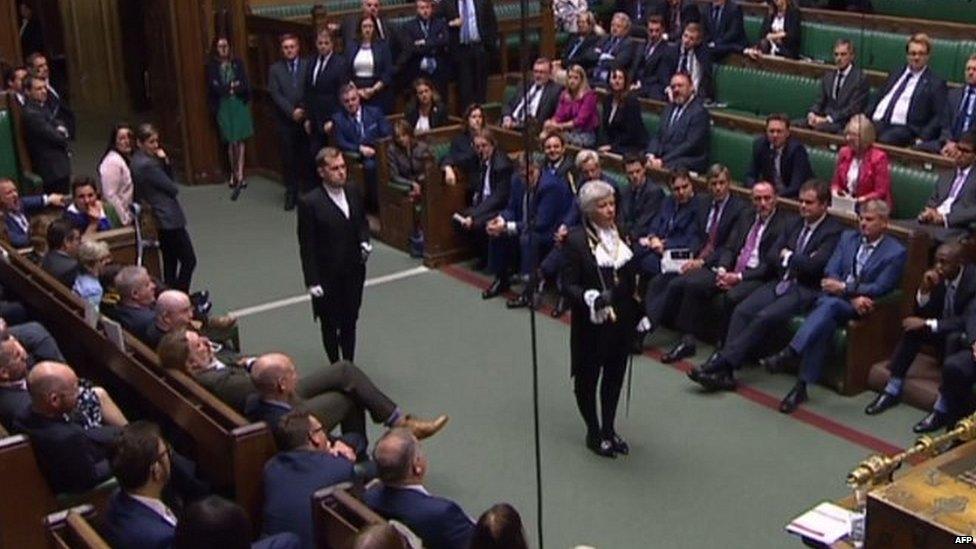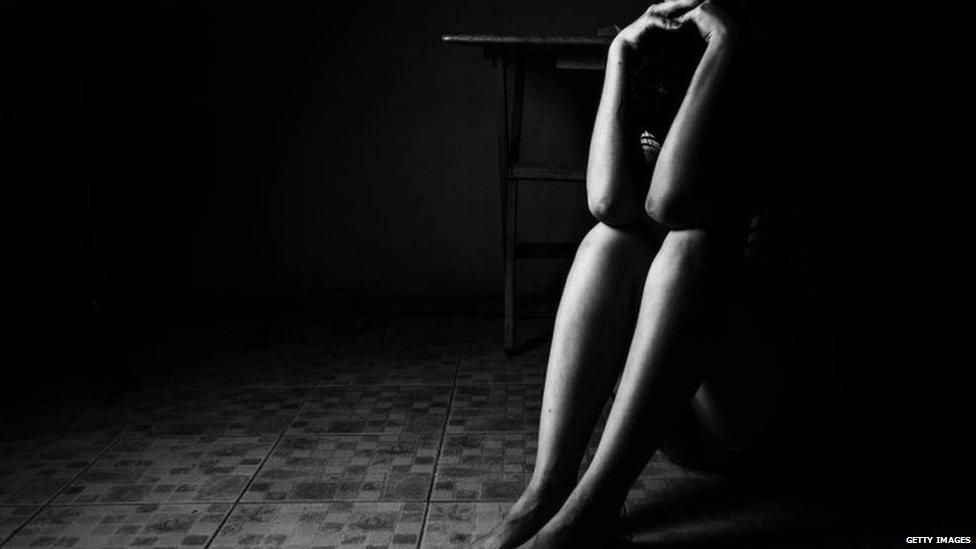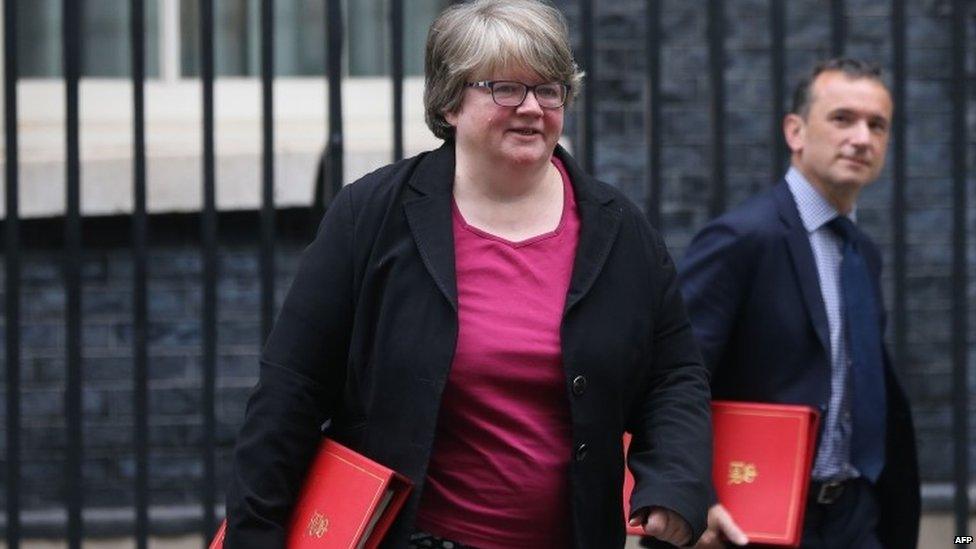The week ahead in Parliament
- Published

Parliament will be prorogued on Tuesday - but this one will be less controversial
With a humdrum agenda for the last two days of the 2017-19 parliamentary session, look to the unscheduled events - urgent questions and ministerial statements - for any drama.
And keep an eye on the manoeuvrings around Boris Johnson's Brexit plan... which factions or individuals will support it and which will oppose.
In such a finely-balanced House of Commons, the verdicts of mavericks and micro-factions could be decisive... and then there's the small matter of whether the plan will be accepted by the EU. If it fails at either end, all manner of drama may follow.
Otherwise, it's a brief parliamentary week with the government proposing to suspend or prorogue Parliament on Tuesday, with a view to launching a new parliamentary cycle, with a Queen's Speech on Monday the 14th.
This leaves a number of important issues hanging, in particular the Domestic Abuse Bill, which received its Second Reading on Wednesday.
Little noticed on the order paper was a "carry-over" motion, which would allow the Bill to survive the end of the 2017-19 session, and continue its progress in the new one.
Under Standing Order No. 80A(10)(c), when introduced in the next Session, the Bill will be sent to a public bill committee for its public hearings and clause-by-clause debate of amendments, to be concluded no later than Thursday 21 November.
In the normal course of events, a Report Stage and Third Reading would then follow, and then the Bill would head off to the Lords.
It is unlikely that it would become law before the end of the year.
The snag is that this sequence of events could well be interrupted by a general election. On the principle that one Parliament cannot bind another, legislation cannot be carried over across a dissolution, as it can be over a prorogation.
So, in that scenario, the Bill falls. But there is a way to bring it back to life - it would be possible to have a motion in the next Parliament to say that the Bill has been deemed to have passed through all the stages that it has already passed through previously, and to, in effect, restart it from that point.

Domestic abuse legislation will be carried over until the next session
Alternatively, it might be just as easy to reintroduce the Bill (possibly incorporating agreed amendments) and restart it on a compressed timetable.
If a dissolution intervened just as the bill had been sent to the Lords, it would normally have to start all over again in the Commons - but in that event there would be a good case for a motion wrapping up and re-endorsing the previous proceedings in the Commons, including sending it to the Lords without passing Go.
Or, if the Bill had progressed a little further in the Lords, before an election was called, it would then be a prime candidate for being rushed through in a wash-up (the process for pushing through half-finished legislation by agreement in the final few days before a dissolution). But wash-up bills are often poorly digested and can have a host of unintended consequences and loose ends.
Watch out, too, for a few rapidly produced reports on outstanding select committee inquiries.
In particular the Joint Committee on Human Rights has been drafting its report on threats to MPs, and given its chair is Labour's Harriet Harman, who has been calling for a Speaker's Conference on these issues, it seems a fair bet that the final product will endorse that idea.
They were going to try and agree the final text, but the rapid move to prorogation may mean that the report will not be published until after the State Opening on October 14th. One important in-house report already out is the Procedure Committee on the need for the House of Commons to set up a Budget Committee.
Monday 7th October

Therese Coffey will make her Commons debut as work and pensions secretary
The Commons meets, at 14:30 BST, for Work and Pensions Questions - a debut for the new Secretary of State Thérèse Coffey.
Doubtless, the usual quota of ministerial statements and Urgent Questions will follow, and then the agenda consists of assorted tidying-up and legislative loose ends, including:
the appointment of a lay member to the Speaker's Committee for IPSA, the parliamentary expenses watchdog
regulations on Northern Ireland ministerial appointment functions
the remaining stages of consideration of the almost totally uncontroversial Census (return particulars and removal of penalties) Bill
In Westminster Hall, at 16:30 BST, Labour MP Daniel Zeichner leads a Petitions Committee debate on Deforestation in the Amazon - on a motion urging the UK to make demands to the EU and UN to sanction Brazil to halt increased deforestation of the Amazon.
On the Committee Corridor, at 16:00 BST, Public Accounts continues its scrutiny of the Transforming Courts and Tribunals programme.
In the Lords, at 14:30 BST, questions to ministers include the Bishop of London, the Rt Rev Sarah Mullally, asking about the Enactment of the Modern Slavery (Victim Support) Bill within the next twelve months.
Then peers will be asked to rattle through a long list of orders and regulations covering:
Product Safety, Metrology and Mutual Recognition, Competition
Trade in Animals and Animal Products (Legislative Functions)
Veterinary Surgeons, Animal Health and Genetically Modified Organisms
Capital Requirements, Risk Transformation and Solvency,
Customs Safety and Security Procedures
Heavy Commercial Vehicles in Kent and Air Services.
Tuesday 8th October
MPs begin their day, at 11:30 BST, with Justice Questions,
The day's Ten Minute Rule Bill is from the Conservative MP and ex-nurse Maria Caulfield
MPs will then be asked to approve Brexit regulations on plant health and environment and wildlife, before moving on to a debate on baby loss awareness week.
Finally the parliamentary ritual around prorogation will be held - with Black Rod summoning MPs to hear a Royal Commission in the Lords.
When this was last attempted there were attempts to hold the Speaker in his seat, and then shouts of "shame on you" as government MPs left their seats to hear the royal proclamation read out. This prorogation is not controversial, so the occasion will default to its Python-esque norm.
On the Committee Corridor, the highlight is probably the Home Affairs Committee session on UK border operations and Brexit, at 10:00 BST, which will look at the government's latest proposals for a withdrawal agreement.
Elsewhere, the Public Administration and Constitutional Affairs Committee (10:00) has, rather appropriately, a session on Prorogation and the implications of the Supreme Court judgment, with a series of high powered experts, including former Justice of the Supreme Court Lord Sumption, and Professor Meg Russell, Director of the Constitution Unit at University College London.
The International Development Committee will hear from the International Development Minister, Dr Andrew Murrison, on the humanitarian crises in Yemen.
And the Home Affairs Committee (10:00) will look at the Home Office's preparations for Brexit. And the Foreign Affairs Committee (14:45) is to explore the government's approach to trade, economics and foreign policy post Brexit, with a panel of expert witnesses including Martin Wolf of the Financial Times
In the Lords, at 14:30 BST, questions include the Lib Dem, Lord Lee of Trafford, asking about the financial sustainability of national museums and galleries.
The main debate is on the Lords Rural Economy Committee report: 'Time for a strategy for the rural economy'.
When that is complete, the Royal Commission to prorogue Parliament will assemble to read their proclamation - and the last rites of the 2017-19 parliamentary session will be performed.
